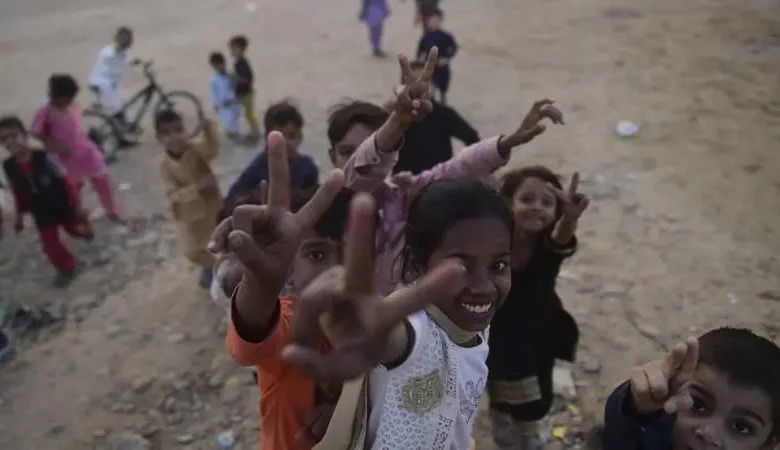World Children’s Day: There Is No Better Investment Than in Our Children

On Friday, Jordan and the rest of the world will celebrate World Children’s Day, which falls annually on November 20, to raise awareness about children’s rights and the ways in which their well-being can be achieved.
“There is no better investment than that in our children, as they determine the future of our country,” Secretary General of the Higher Population Council Abla Amawi told The Jordan Times.
Amawi pointed out that Jordan “has achieved many milestones in promoting children rights and children development, as it is evident in the Kingdom’s eagerness to implement the United Nations Convention on the Rights of the Child’s (UNCRC) recommendations and the 2030 sustainable development goals”.
Noting that Jordan has “tried to ensure that its economic and social progress is being reflected positively on children’s livelihoods”, Amawi said that the Kingdom has “made a quantum leap in many sectors, particularly in education”.
A 2018-2019 statistical report by the council revealed that 98 per cent of children up to the age of 16 are enrolled in school, a percentage which Amawi said “reflects Jordan’s ability to lay the foundations for a comprehensive, high-quality educational system, where free, compulsory and comprehensive education has been achieved”.
However, other council reports show that violence against children is still a problem in the Kingdom. Almost 83 per cent of children aged one to 14 years were exposed to some violent methods deemed as “disciplinary” by their caregivers.
Last year, in a poll on its social media platforms, UNICEF asked the public if they agreed that children have the right to live a violence-free life, which involves the elimination of “disciplinary” violence. Seventy-one per cent of the poll’s respondents stood in support of the statement and 29 per cent in opposition to it.
Most citizens who disagreed with the statement said they believed that “violent discipline is essential to a good upbringing”, as put by an individual on Facebook.
Many citizens went on to share their own stories of family violence, attributing it to “culture” and claiming that they “turned out as fine adults”.
Mohammad Naser, a medical fellow at the Cleveland Clinic, stressed that “disciplinary violence is just violence. There is nothing disciplinary about it. Its effects on children, which remain with them throughout their lives, have been documented and proven in numerous pieces of research. The Middle East needs to let go of this non-scientific cultural myth”.
A UNICEF study in 2018 showed that 1.2 million children in Jordan were subjected to child abuse at some point in their lives.
With regard to child labour, the results of the 2016 National Child Labour Survey have shown that the number of working children in Jordan reached nearly 76,000, accounting for 1.89 per cent of the total number of children in the age group between 5 and 17 years.
“One of the most important agenda of the Ministry of Social Development and the Ministry of Labour is to help rescue the children who are thrown by their families into the unjust world of child labour, and to bring them back to schools,” said Ministry of Social Development’s spokesperson Ashraf Khreis.
The pandemic, in particular, has exacerbated the social and economic challenges faced by the most vulnerable children and youth in Jordan.
A study carried out by UNICEF showed that, as a result of the pandemic, 17 per cent of children under the age of five have not received basic vaccinations, in addition to 23 per cent of sick children who did not receive the necessary medical care, “largely due to fear of transmission of the virus and the lack of financial capacity for treatment”.
The results of the study also showed that the pandemic revealed a gap in access to digital technologies for children in the most vulnerable families. The Ministry of Education’s data showed that at least 16 per cent of children in Jordan are unable to access the DARSAK platform, either due to a lack of access to technology or to the inability of parents to support their children in the process of distance learning.
A joint UN rapid assessment conducted in April found that 26 per cent of children from vulnerable families had no Internet access in their homes.
“Far more families in Jordan lack sufficient devices, connectivity, data and parental support to fully engage with distance learning,” said the UN.
“Under the leadership of the Ministry of Education, Jordan opened schools in September 2020 with structures and public health measures in place for dealing with COVID-19 effectively. The UN has provided guidance on how decisions to close or reopen schools can be made based on a risk-based approach that takes into account the epidemiological situation, public health measures, the capacity of schools and the impact on children,” said Anders Pedersen, UN Resident and Humanitarian Coordinator in Jordan, in previous remarks to The Jordan Times.
The Higher Population Council takes International Children’s Day as an opportunity to stress the “importance of ensuring that children grow up in a safe environment that guarantees their access to education, health and social protection services”.
“Investment in the economic empowerment of the youth and an increase in coordination between the relevant authorities to develop budgets that meet the needs of the child are crucial,” the council noted.










